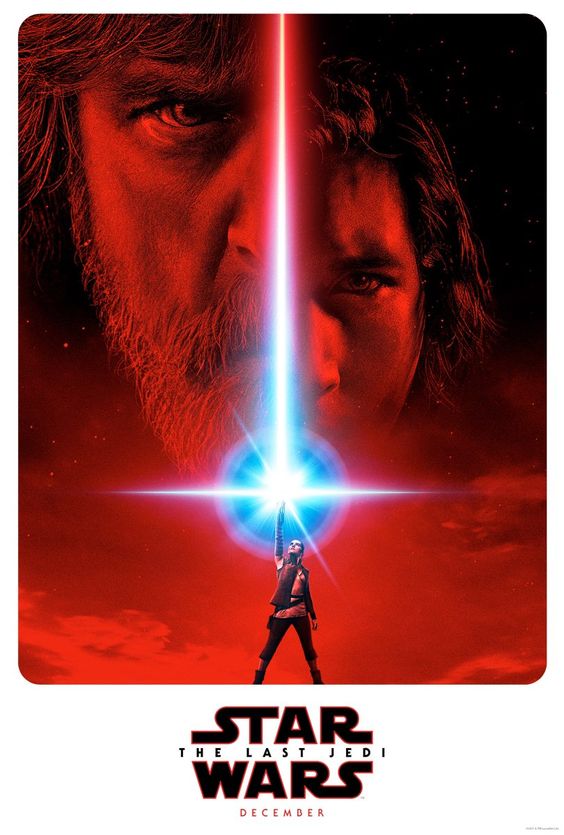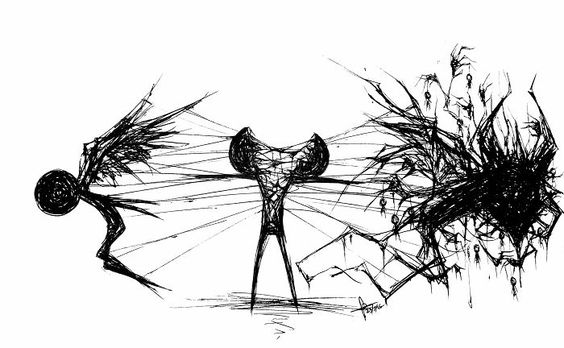For those living under a rock these holidays, The Last Jedi – the latest chapter in the Star Wars movie mythos came out before Christmas and has been somewhat divisive to say the least. Just search Youtube for the topic and you’ll find dozens if not hundreds of rants, reviews and analysis of the movie and its unusually strong fan backlash.
I’m not going to try and capture all of that here, but for my review will delve into some of the more writerly aspects of why I think fans didn’t like the movie while offering my own humble opinion along the way.
Obviously a major spoiler warning for The Last Jedi, and prior Star Wars films!
Before getting into the nitpicky stuff, I think one of the odd problems with The Last Jedi (or TLJ for short) is that it is definitely not a terrible film. Critics liked it, the special effects (bar one Yoda scene) were top notch, the action was well crafted , the actors themselves did a good job and in general the film hit all the typical story points and arcs a film should. Why is the film being good a problem you might ask? Well this puts fans in an uncomfortable position, as I will get into soon, the writers make some questionable decisions, and its actually more frustrating to accept an almost brilliant film than it is to say switch your brain off for a complete dumpster fire of a film.
It’s important to remember that Star Wars as a franchise is in a very controversial place. Since the Prequels of the 00’s the future of the franchise has been in question and the last 3 Star Wars films are the first few under Disney’s umbrella and to say fans are desperate for good films is probably a massive understatement. Also fans of the current movies are extra vigilant as what comes out now will be setting the future of the franchise up for the foreseeable future, fans will be hyper-vigilant with this in mind.
Alright so what bothered fans so much about TLJ
For starters we might have to delve back into the first movie of the Trilogy The Force Awakens (TFA). TFA was an interesting movie for the above mentioned reasons re: the franchise and in my opinion the writers and directors took the most logical option with the incredible amount of pressure on the film and basically rewrote the very first film A New Hope with a fresh coat of paint. I enjoyed TFA but I believe this laid the groundwork for the fan tensions with TLJ. By basically rewriting an old Star Wars story the series setup a tension between saying something new and sticking to what was essentially being promised e.g. the old Star Wars storylines. I think most people generally understood that TLJ wouldn’t just be a rehash of The Empire Strikes back but it does bring that tension to the foreground when the movie previous was such as it was.
In short TLJ was somewhat doomed because being too similar to the old movies would make it seem repetitive, and any deviation would seem too un-Star Warsy.
Secondly on the subject of TFA, what was setup for the next film was played out quite differently to how I believed most fans expected. In the conclusion of TFA we basically see Rey and Kylo both go their respective ways for further advancement – and the First Order has been struck a major blow in the form of the Deathstar being destroyed. When TLJ opens we basically find the Rebels on the verge of destruction and The First Order have taken over the galaxy but really very little time has passed since the prior film, Kylo is still injured, and we pick up from exactly where Rey left off from the first film.
None of this was exactly a problem in itself, it just sat awkwardly for me personally, and I suspect many fans. In TFA I didn’t have a sense that The First Order were on the verge of taking over the galaxy, nor did I get the sense that the rebels were about to be wiped out. Again its not exactly a problem that this was the premise for TLJ it just felt jarring that the over-arching storyline was basically back to square one re: Empire and Rebels, it also created a tension (again for major fans), who were unlikely to feel satisfied with a major victory being ‘the rebels survived at all.’
Anyway
So we’ve covered the jump from TFA to TLJ, lets actually get into the film!
TLJ opens with a sequence where the rebels (Ok I think they’re the resistance now but who cares) are attempting to flee their current base, and the First Order leap out of hyper-space to attack.
Po-D confronts a massive enemy ship in a lone X-wing, makes Yo’ Momma jokes and proceeds to basically solo the empire ships ‘turrets’ before calling in some bombers to take out a Dreadnought, almost all against the orders of General Organa.
For many fans this was a bad start to a bad film and in my opinion is the beginning of a core problem with the writing of the story, in that the movie basically wants to have its cake and eat it too. In the opening scene we’re meant to be setting up the rebel fleet as being highly vulnerable and on the run, yet here Po is basically taking down the enemy on his own in a dramatic fire-fight that feels like it should be towards the end of a film not the beginning.
Again with the cake and eating stuff, Po is setup to have a character arc of being too foolhardy but learning to be a better leader, but the film pulls all its punches and just creates a kind of awkward stand-off. The film reminded me a lot of BattleStar Gallactica in which much of the plot revolves around tough choices of the last survivors of mankind – however in TLJ the choices were kind of toned down. Not that I want to rewrite the movie but if Po and his commanders presented more diametrically opposed stances, such as Po wanting the rebels to go out guns blazing rather than running, then his mutiny would have been much more intense and significant, rather than just trying to buy time for Finn and his stupid plot to play out (which it didn’t anyway). It also felt like the consequences of said mutiny were pathetic: “We like him” say Leia and Holdo patronizingly, and ignoring the fact that he literally took the ship by force during a massive crisis.
This sort of half-measure plot points continues throughout the film. A major thematic point was supposed to be that Good vs Evil is too simplistic, but then the major climax is good triumphing over evil. Luke confronts The First Order in epic fashion, but then turns out not to be there, but still dies from the effort, Finn is preventing from sacrificing himself because “that’s not how we’ll win” yet multiple other characters do sacrifice themselves just like that. Ghost Yoda tells Luke to let the last Jedi texts burn, yet in the end we see them in Finns cabin (honestly this part still makes no sense to me), the whole film has a weird sense of non-commitment which undermines any single powerful thread and instead tries to cover everything.
Personally I think this is ultimately that bothered fans, the sense that throughout the film you were never on the edge of your seat because you knew that the film would tell a joke, pull-punches or have a tension resolved by another characters arc via co-incidence rather than tell one powerful story-line.
And while this doesn’t fit anywhere in my review I do have to say I can relate to the fanboy rage of one particular scene. A moment where somehow Leia force drags herself from the depths of space after being violently blown out of her ship’s bridge. Fan’s are divided on this, no-where is it portrayed that Leia has that sort of Forcey oomph! She is mentioned in the original trilogy as a potential savoir should Luke fail, and she does have considerable ‘sight’ however no-one where is it setup that she could be powerful enough to survive such a scenario. Not only an example of the movie pulling punches but also doing so in a jarring, weird looking way. I mean Yoda looked terrible in this film but that scene made me feel like I was suddenly watching a space-ballet not a movie.
Anyway I’ve pontificated long enough – would to glad to hear your thoughts on the film (but would be equally glad to move into something new LOL!)







